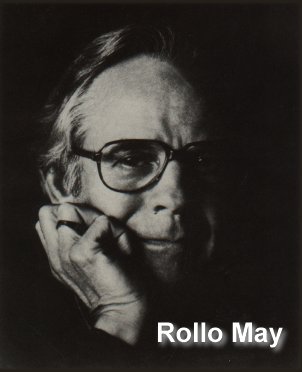Cognitive Style: Gregorc's Style Delineator
Now a day, it is an acceptable concept in the field of psychology that everyone has different perspective, therefore percept the world differently. This perspective defines much of what we are, as well as our strength and weaknesses. In this includes our natural learning strength, called as the learning style. Because each person's learning styles are different, the same approach cannot be apply to every single person. Therefore, models of learning styles was proposed to classify each person into a group of learning style. One of the most effective model is proposed by Anthong F. Gregorc and Kathleen A. Butler through their research, called as Gregorc's Style Delineator.
The Gregorc's Style Delineator is a test for determining the learning styles of each individual and provides the suggestion of how the mind works. The model is divided into two perspectual qualities and two ordering abilities.
The two perspectual abilities are abstract and concrete. Abstract perception is the quality that allows an individual to visualize, concieve ideas and percept something that cannot actually be seen. The abstract person tends to use more intuition and imagination in dealing with ideas. In contrast, the concrete perception is the quality for straight forward and direct way, unlike the abstract which is more subtle with communicating something. Concrete person often deals more with facts, truth and reality, not with imaginative things like the abstract person.
Gregorc and Butler suggest that there are two ordering ability, sequencial and random. Sequencial person often deals with data in a linear, organized manner. They tend to plan out and follow it step-by-step rather than just do it without any foreplan. Unlike the sequencial ordering ability, random person prefer to deal with information in chucks, making them to sometimes be able to skip steps or work in the unorganized order and yet gains the desired result. Random person can work from the middle, from the very end or even work back and forth without having any plan and steps to follow.
By combining one of the perceptual ability with one of the ordering ability, the two researchers comes up with the combination that explains each individual's style according to which abilities, both perceptual and ordering, do each tends to work more on.
The Test:
We are given ten lists, four words in each list, which composed of mostly adjectives and nouns. According to the test, we must use our first impression of each of the list to rank the word that most describe us. Then we add up the score for each of the rows before adding one row to another, according to the test, to get our final score for each of the styles.
My Result:
After doing the test, I get the score as shown:
Abstract Random: 31
Concrete Random: 27
Concrete Sequential: 24
Abstract Sequential: 18
Overall, I think the result is pretty much accurate, in my point of view, because I think I am rather a random person, taking into account that I can't really follow up with any of the time plan I made and never use the planner to keep record of events and things to do. So, it does reflect my personality as a random person. The interesting part is that it also suggest that I am neither abstract nor concrete, in the way the result is ordered. True that I get the highest score as an abstract person, but interestingly the lowest score, too, is abstract. This may suggest that I am probably somewhere in the middle.
Interpretation:
This is an interpretation of the person with abstract random as a dominant trait, according to Gregorc's Style Delineator:
What Do They Do Best?
Listen to others
Understand feelings and emotions
Focus on themes and ideas
Bring harmony to group situations
Establish positive relationships with everybody
Recognize and meet the emotional needs of others
-- Personal Response:
I agree to most of them, since it is quite true that I always prefer listening to other people, and always try to focus on the ideas and themes. I cannot really says it fully though that I the relationship I established is always positive. I do tries to recognize and meet the emotional needs of others, but from what I notice, sometimes I just screwed it up for some reason.
What Makes Sense to Them?
Personalized learning
Broad, general guidelines
Maintaining friendly relationships
Enthusiastic participation in projects they believe in
Emphasis on high morale
Decisions made with the heart instead of the head
-- Personal Response:
Yes, I like it better just to grasp on the big idea, doesn't need to be much into details, since sometimes, when I go in more and more detail, I began to get confused with myself and messed it all up. I don't really like to do group work in general, but if it is assigned so, I often try to help out, and feel regret if I think I didn't help the group enough. I judge many thing by first impression and through what I'm feeling at that moment, from what I am going to eat to which homework I want to do, which oftentimes get in trouble due to that I forgot about the homework that is due tomorrow and go on and just work on the homework due even a week after that. I don't really feel as if I can maintain much of my relationship though.
What’s Hard For them?
Having to explain or justify feelings
Competition
Working with dictatorial/authoritarian personalities
Working in a restrictive environment
Working with people who don’t seem friendly
Concentrating on one thing at a time
Giving exact details
Accepting even positive criticism
-- Personal Response:
True that I don't like to even express my true feeling in words, for that is what Thai people often are like, so it's hard to explain how I feel exactly. I only enter competition which I think sound fun, but hate it when I really need to compete with someone on something that I am not really interested in. I think the third one applied for anyone, since no one would probably like to be order around too much, and don't like it when people are being unfriendly. Unless for something that really catch my attention and make me feel truly involved or something that can be done in no time, I don't like to work on one thing, even with something I really like. That is why I often multi-task by doodling in the classroom. Most of the time, I will go from the very simple and vague way of phrasing my words first, and only go into deeper detail if needed to. But I cannot really say that I can or cannot accept positive criticism due to the meaning of what positive criticism is.
What Questions Do They Ask While Learning?
"What does this have to do with me?"
"How can I make a difference?"
-- Personal Response:
If I am in a really bad mood, then the first question is similar to what I would have ask. Otherwise, I don't think I use that question that often. But the second question is what I used more. I want to improve, I always look for a way and find what go wrong. What can be change is what I am focusing on most, not what I am already good at.
Evaluation of the Test:
I don't think style is something that you can draw a clear boundary across and classify it. Rather, it is something, bits and bits, that people gather to get the way that work best for them. Sometimes, it is even a cross over. So, partly I don't think the test has be very accurate, but only accurate to a certain extent. Things too can go wrong with the test, especially for the REAL random person. The choice, even from the first impression sort of thing, can varies depend on the mood a person is in as well, leading to an inaccuracy in the test. Also, the test, in my opinion, still failed to take other factor into consideration, such as mood, as I said before, environmental factor, cultural factor, and the person's own perspective, especially when defining the word.













